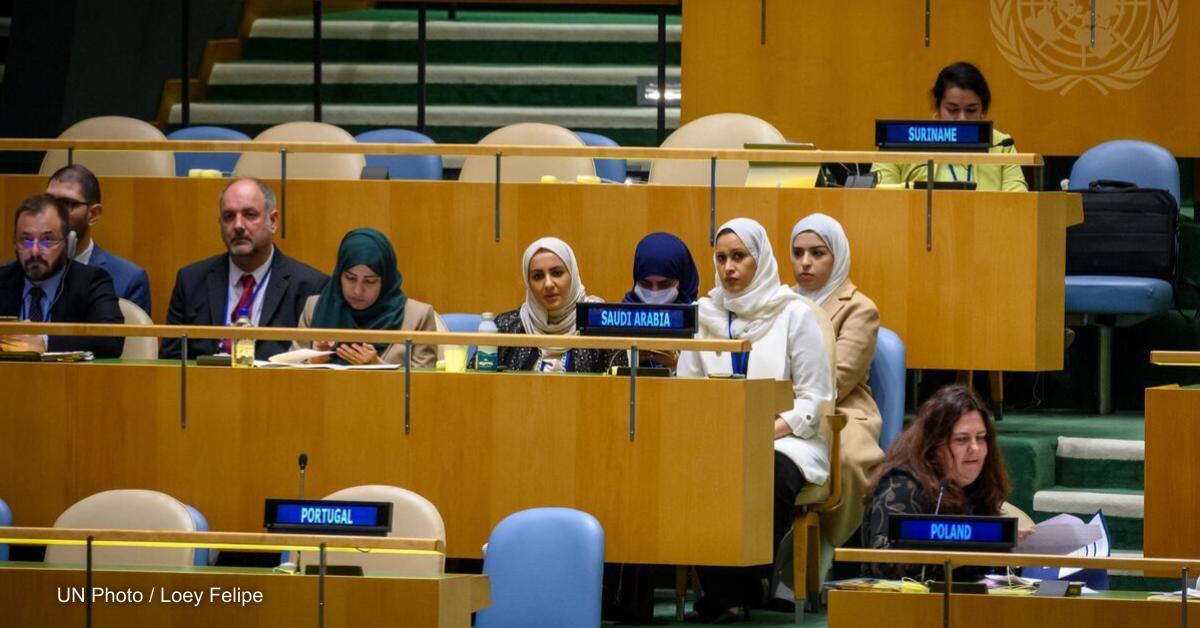At the end of March 2024, Saudi Arabia was appointed to chair the 69th session of the United Nations (UN) Commission on the Status of Women (CSW). This decision, made unanimously, results in questions regarding the legitimacy of Saudi Arabia to occupy such a position for such a delicate and important cause, even though Abdulaziz Alwasil (Saudi Ambassador to the UN) didn’t face any rival candidates and there was no dissent from the committee. It is important to recall the role of this commission: it is supposed to promote gender equality and empower women around the world, and contrast it with the Kingdom´s numerous well-known violations against women’s rights
However, this nomination doesn’t come from anywhere, as it’s the result of years of efforts from Saudi Arabia to achieve such a position, which has always been denied. In this sense, although Saudi Arabia showed many times its will to chair the CSW, the meager oil prices during the COVID era and the subsequent ability to not depend so much on Middle East oil, had allowed the international community to resist Saudi Arabia’s demands. At the same time, the country at the time considered improving certain aspects of its human rights policy to have people come and invest in the country, as prices of oil were declining fast. But after COVID-19 ended, oil prices started to rise again, and Saudi Arabia found itself in a position of strength as the International Community was and still is highly reliant on the Middle East to get oil. Therefore, with the status the Kingdom got thanks to the oil prices increase, many reforms regarding the improvement of human rights in a lot of different areas were abandoned which showed how these reforms were only here to serve a less-than-noble interest.
However, this nomination seems a bit ironic as women’s situation in Saudi Arabia is catastrophic. As a reminder, the Kingdom ranks 131st out of 146 countries in terms of gender inequality, which makes it one of the worst countries to live in as a woman. Even though it ratified the Convention on the Elimination of All Forms of Discrimination against Women in 2000, plenty of violations against women’s rights still occur. Recently, Amnesty International reported that a young woman named Manahel al Otaibi was arrested and detained for posting a picture of her on social media without her abaya in a Saudi Arabian mall. This example perfectly illustrates the insecurity women in Saudi Arabia are facing every day and how their lives are constantly threatened. Saudi Arabian society is indeed modernizing itself regarding the status of women as they are now able to study, travel, and work without a man’s authorization. But there’s still a lot of progress to realize: in families attached to tradition, fathers or husbands still forbid their daughters or wives to have access to education and to work, which are basic human rights that should be guaranteed to every human being. These women are trapped in a patriarchal society with no hope of emancipation. Moreover, the country passed a new law in 2022 that restricts women’s freedom, especially in the context of marriage. This law states that a woman needs her husband’s or father’s authorization to get married. In addition, a married woman doesn’t have the right to file for divorce without her husband’s consent, meaning that, if he refuses, she is obliged to stay married to him. On 8 March 2023, International Women’s Rights Day, Amnesty International said this law perpetuates the male guardianship system and enshrines law discrimination against women in most aspects of family life.
Even though there was no opposition to the nomination of Saudi Arabia for the presidency of the Commission for Women’s Rights, the media tend to affirm that Saudi Arabia imposed itself after lobbying seen by many as an attempt to restore its image. However, there were many external controversies, especially from Amnesty International who recalled the UN Charter’s purpose, which clearly states that respect for human rights is one of the UN’s main objectives. The nomination of the Kingdom for the presidency of such a commission highlights the ditch between the reality of the lives of young women in Saudi Arabia and the commission’s aspirations. It is primordial to embody a role figure when occupying such a position and that’s why a country that isn’t respecting women’s rights can’t set an example and push for improved rights.

